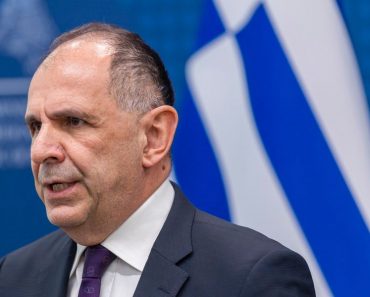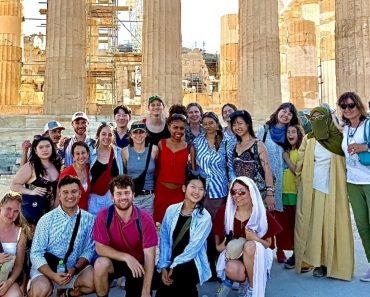
Turkey intensifies its efforts to obstruct key infrastructure projects that involve Greece and Cyprus in the Eastern Mediterranean, specifically the Great Sea Interconnector (GSI) and the East to Med Data Corridor (EMC). Ankara leverages its “Turkish continental shelf” claim to create geopolitical hurdles, affecting the projects’ viability and causing significant delays.
The GSI and EMC projects create a new connectivity axis linking Greece, Cyprus, Israel, and Saudi Arabia with Europe. Turkey views these initiatives as an attempt to bypass it and diminish its regional influence.
Last week, Ankara halted survey work for the EMC. Turkish defense sources confirmed that the Gibraltar-flagged research vessel, Fugro Gauss, was stopped for operating without permission in waters Ankara claims as part of its continental shelf. The ship was conducting surveys for the EMC, a planned fiber-optic cable from Israel to France via Cyprus and Greece.
Turkey’s rhetoric and tactics are a carbon copy of those used against the GSI. Turkey has repeatedly opposed the project, with sources from the Turkish Ministry of Defense calling the planned activities “provocative” and accusing Greece and Cyprus of proceeding without Turkey’s consent. The sources added that these efforts, driven by what they called “maximalist ambitions,” are ill-conceived and lack the necessary resources.
This demonstrates a consistent strategy to obstruct any infrastructure that bypasses Turkey, regardless of whether it’s for energy or telecommunications. The involvement of a consortium led by Saudi Telecom and Greece’s Public Power Corporation (PPC) highlights Turkey’s willingness to pressure third countries that collaborate with Greece and Cyprus.
Turkey’s actions are part of a broader “Blue Homeland” (Mavi Vatan) doctrine, a maritime policy that asserts expansive claims over vast swathes of the Eastern Mediterranean. By issuing counter-NAVTEX notices and deploying naval and air forces, Turkey aims to prevent seabed surveys and construction for projects that do not include or benefit it.
Turkey is not a signatory to the United Nations Convention on the Law of the Sea (UNCLOS), which defines how exclusive economic zones (EEZs) are delimited. It argues that islands like Crete, Kasos, and Karpathos are not entitled to a full continental shelf, challenging the median line between these Greek islands and the Anatolian mainland.
By creating instability and uncertainty, Ankara seeks to pressure these countries and international stakeholders into including it in future projects or negotiations, effectively positioning itself as a key regional gatekeeper.
The GSI: Turkey harasses Greece and Cyprus
The GSI is an ambitious project to create a submarine electrical cable linking the power grids of Greece (via Crete), Cyprus, and Israel. It’s considered a Project of Common Interest (PCI) by the European Union, which has provided substantial funding (around 657 million euros) to end the energy isolation of Cyprus and Crete.
The project’s first phase, connecting Crete and Cyprus, has started, with some cable manufacturing underway by the French company Nexans. However, geopolitical tensions have caused surveys to be frozen since July 2024. Turkey’s naval harassment of research vessels is a primary reason for the freeze on seabed surveys.
The Cypriot government and its energy regulatory authority, CERA, have been hesitant to provide necessary financial and regulatory approvals, citing geopolitical risks and a potential burden on consumers. This has been a source of tension with Greece and the EU.
The cable manufacturer Nexans has expressed its readiness to divert its resources and manufactured cables to other projects if the GSI continues to face delays and uncertainty. This statement, while carefully worded, signals the company’s limited patience and puts pressure on stakeholders to resolve the issues.
Greece has firmly stated that the project will proceed, but has kept the timeline for resuming research operations under wraps amid increasing pressure from Turkey.
Greek Foreign Minister George Gerapetritis acknowledged the uncertainty around the timeline for the resumption of the research, stating at the Delphi Forum earlier this year: “The research and cable laying will resume at the appropriate time. There has never been a fixed date for this. We will proceed as necessary, when the time is right.”







